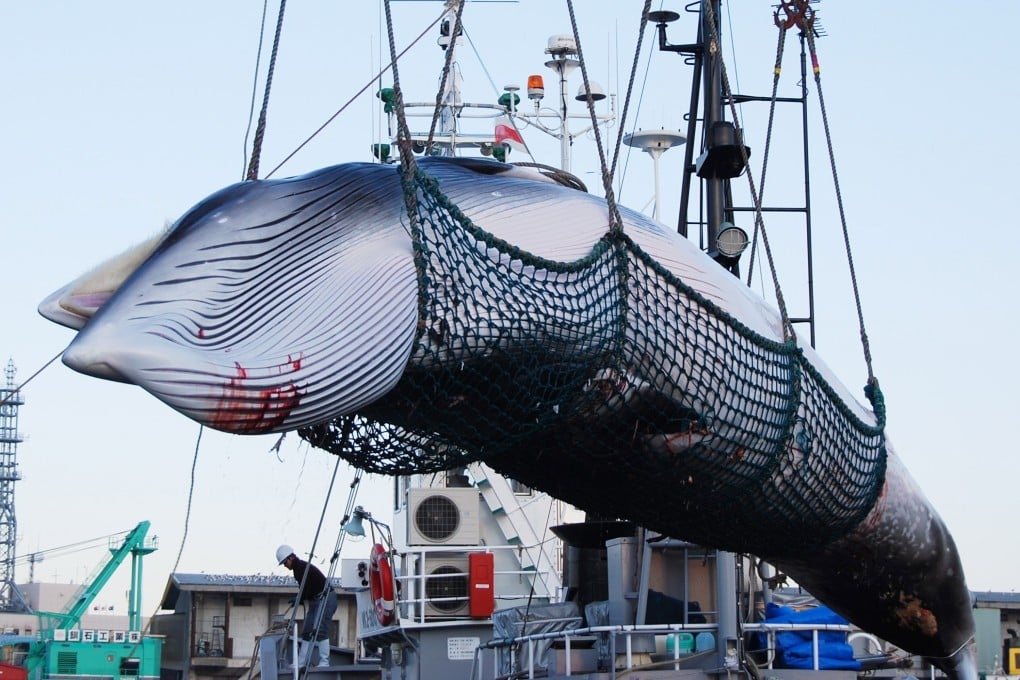Opinion | How Japan’s return to commercial whaling could actually kill the industry and save whales
- Jeff Kingston says Japan’s defiance of an international ban on commercial whaling could yield positive results. Tokyo can raise a nationalist banner over its exit from the agreement, but also pull the plug on a heavily subsidised industry

Whale meat consumption as a culinary pillar and talismanic symbol of Japanese identity is an invented tradition. Whale was traditionally eaten in coastal whaling communities, but it was only in the post-war era that the meat became a major source of protein and a dish on the school menu.
Although there is a certain degree of nostalgia among Japan’s ageing baby boomers for whale, hardly any Japanese eat the meat nowadays, even at heavily subsidised prices.
According to government data, the country ate more than 233,000 tons of whale meat in 1962, but only 3,000 tons in 2016. In a 2014 Asahi survey, 4 per cent of respondents said they occasionally eat the meat, and 10 per cent said they had it on rare occasions.
In my local market, whale typically sells for far less than tuna, but even so the government holds several thousand tons of whale meat in cold storage at significant expense.
In desperation, whale has been sold as treats for dogs in Japan, and included again on school lunch menus. However, unsafe levels of mercury have been found in whale products in Japan.

